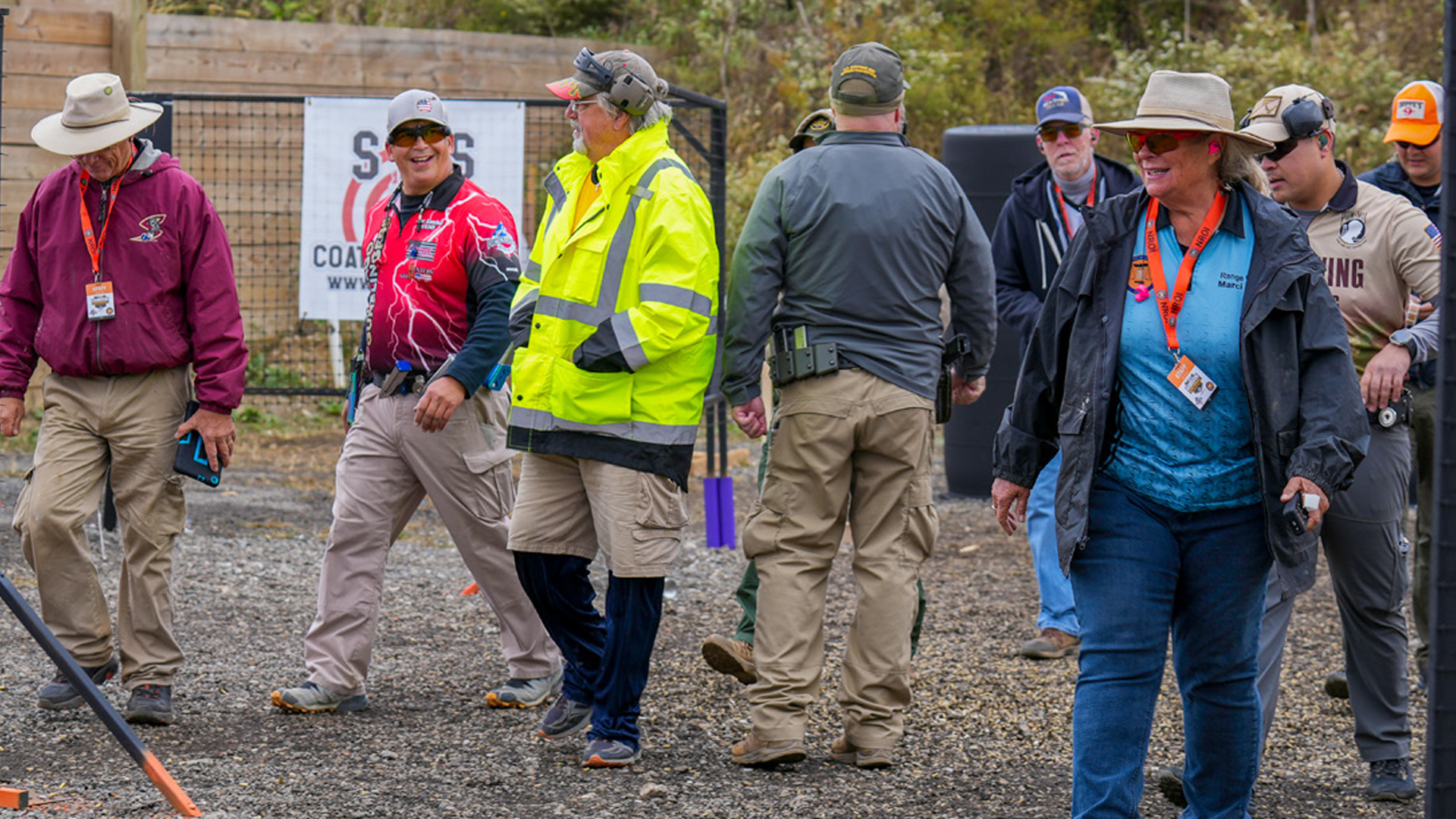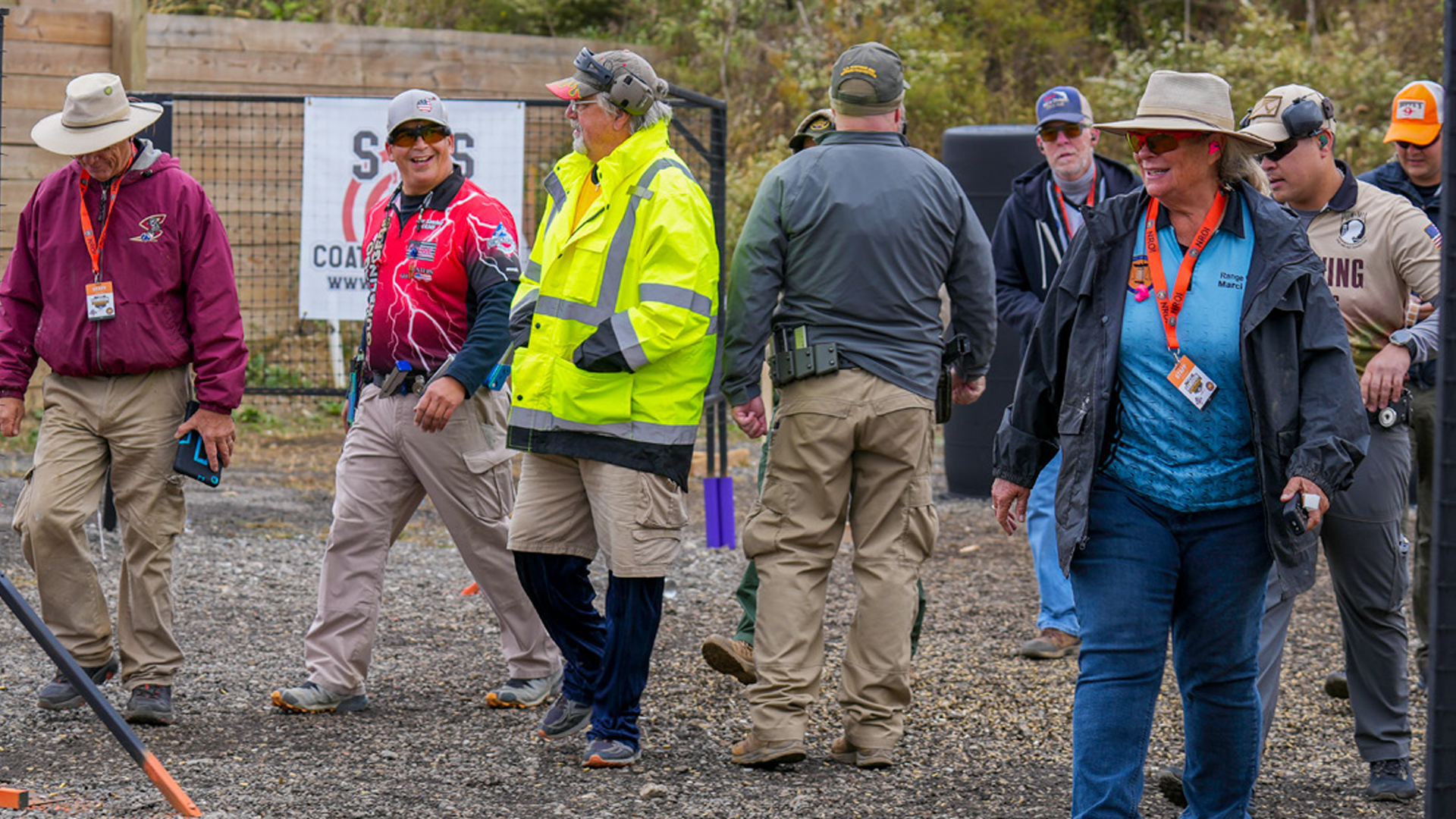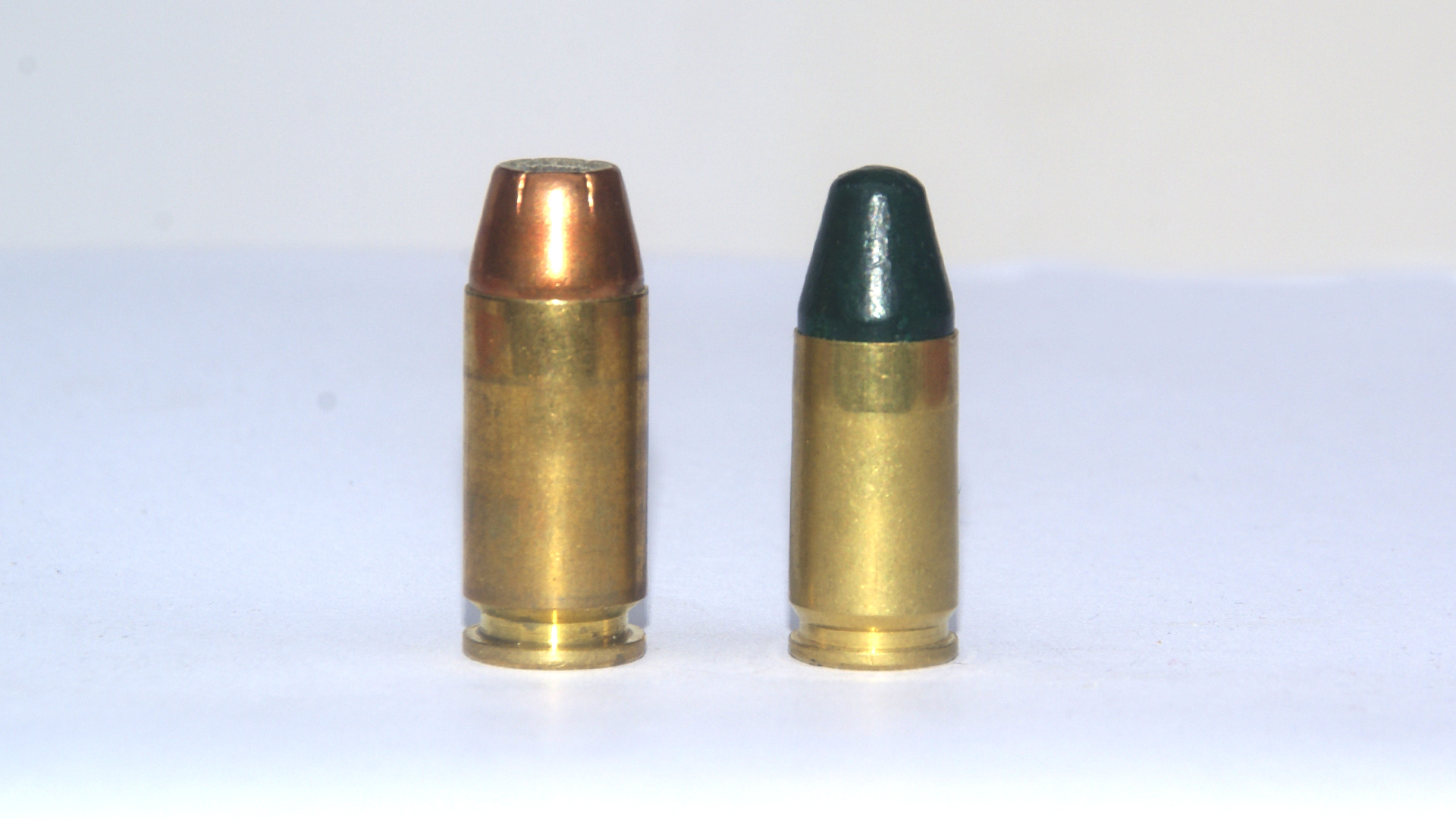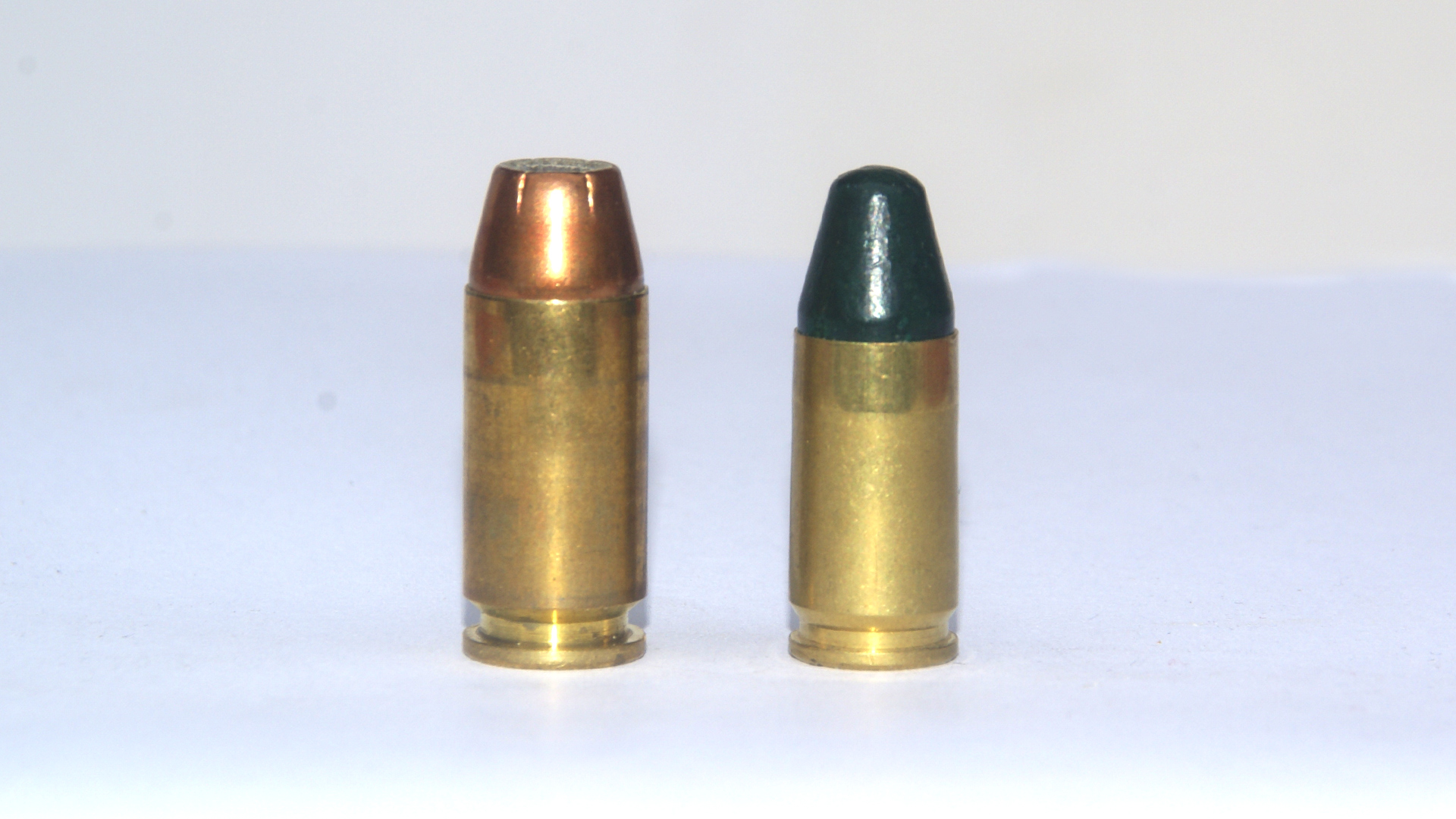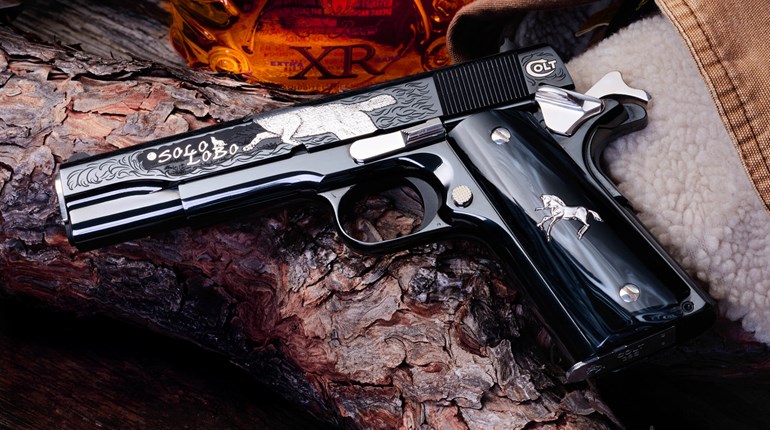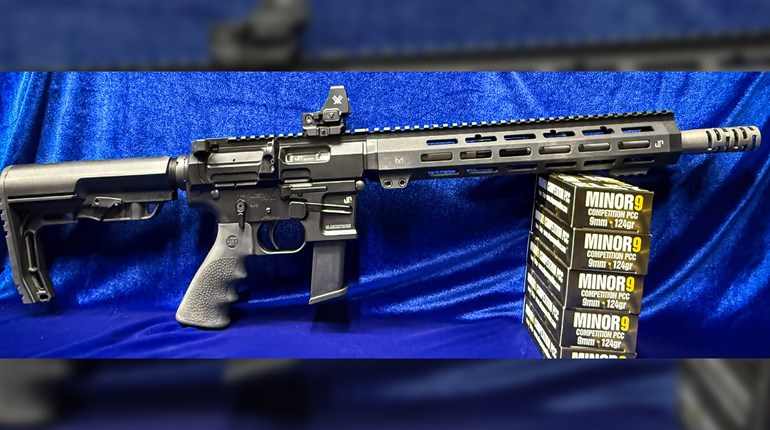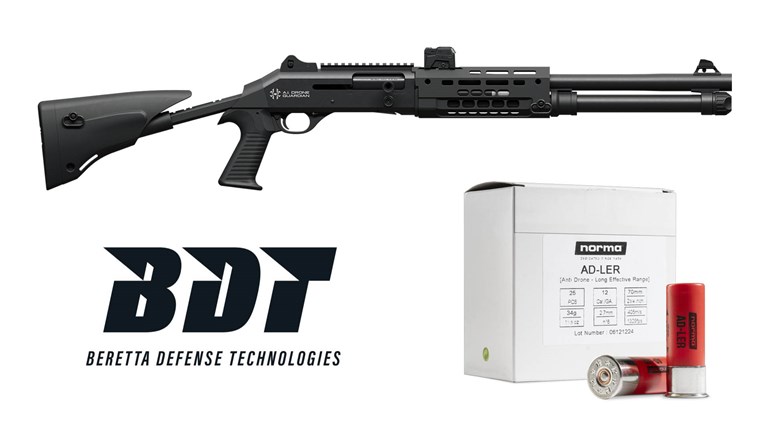
Atlanta Arms is well known for catering to the competitive shooter. They offer several handgun rounds in 9mm Luger, .38 Special, .38 Super, .38 Super Comp, .40 S&W and .45 Auto tailored to competitors’ needs. Specifically, high quality accurate ammunition. They don’t make ammunition just for competition as their line includes quality ammunition for any purpose, including for self-defense.
Among their product line is a low recoil Steel Challenge 9mm Luger load with a 100-grain bullet. It’s rated for 1090 fps which produces a power factor of 109. It is designed with Steel Challenge matches in mind. Steel Challenge does not have a minimum power factor requirement, and some shooters load their ammo very light to keep recoil low but with enough energy to reliably cycle the gun. Less recoil means you can get the sights back on target faster.
I picked up three of Atlanta Arms’ 100-grain Steel Challenge loads. They offer it under three brands, Select, Premium and Elite. The Select line is remanufactured ammunition and uses mixed brass. There were several headstamps in the box I received, including Federal, SIG, Fiocchi, PMC, Xtreme and Winchester. It was clean and shiny. The Premium line uses new brass, and my box was loaded in Atlanta Arms cases. The Elite line uses new brass and is loaded with match-grade components. My sample was loaded in JAG (Jagemann) brass.

The 100-grain round nose bullets are advertised as full metal jacket (FMJ). I pulled one bullet from each brand. They are plated bullets, which are referred to as FMJ by some companies. All three brands had what appeared to be the same hollow base bullet. Their weight was 99.9, 100.1 and 100.2 grains.
The ammunition was fired in three pistols to check reliability and in two of them for accuracy. These are low recoil rounds and reliability is a concern. The Atlanta Arms’ website says that the loads are reliable in a Glock G17 but might require changing recoil springs in heavier/larger firearms.
The ammunition ran reliably in my test pistols: a Glock G19 and a S&W M&P9 2.0, both with factory recoil springs, and a 1911 with a five-inch Kart barrel with a 19-pound hammer spring and a 14-pound recoil spring. Ejection was reliable from all three guns, though the M&P9’s ejection was a little weak. The cases were ejecting about a foot away. Still, the slide locked back after the last round for all guns.
Atlanta Arms does not indicate on their website what gun or barrel length they used for velocity readings. My five-inch barrels produced velocities that averaged 1182 and 1184 fps compared to their 1090 fps advertised speed. Still, this is less than typical 115-grain ammo shoots from these guns, which is generally in the low- to mid-1200 fps range, so the recoil was very light. Velocity from the G19’s four-inch barrel averaged 1128 fps.

The ammunition was tested for accuracy at 25 yards in two pistols mounted in a Ransom Rest, the S&W M&P9 and the 1911. Accuracy from the S&W M&P9 ranged from two to seven inches. The Premium load had the best five-shot average of 2.03 inches. Accuracy from the 1911 pistol produced five-shot 25 yard groups that averaged from three to four inches. The Elite brand produced the best five-shot group average of 2.89 inches.
These Atlanta Arms rounds had roughly 3.8-3.9 grains of gunpowder, and calculations showed with a 100-grain bullet at 1182 fps (from my five-inch 1911) with 3.9 grains of powder would produce 2.48 foot pounds of recoil in a two-pound gun. This compares to 3.62 foot-pounds of recoil from a 115-grain Winchester white box FMJ (Q4172) 9mm round at 1222 fps (also from my five-inch 1911) that contained 5.7 grains of powder. The Atlanta Arms 100-grain load has about 31 percent less recoil than the Winchester 115-grain load.
These 100-grain 9mm loads are well suited for Steel Challenge. The low recoil means speedy recovery to get the sights on target quickly. Accuracy was good enough for Steel Challenge plates—though you’ll need to test that in your gun.
The low recoil will be welcomed by non-competitors as well. The 9mm does not have heavy recoil, but less recoil means a more pleasant shooting experience and is good for training and introducing new shooters to the shooting sports. Low recoil is less likely to cause flinching, the number one nemesis of everyone behind the trigger, so this ammunition should appeal to everybody looking for something milder than the typical factory fare.
The price of the Select brand of 100-grain 9mm Steel Challenge ammunition is $18.99 per 50, or $11.25 per 50 if purchased by the case. The price of the Elite brand is $23.99 per 50, or $15.50 per 50 if purchased by the case. The Premium version is not listed on their website at the time this article was written. Check them out at AtlantaArms.com.

